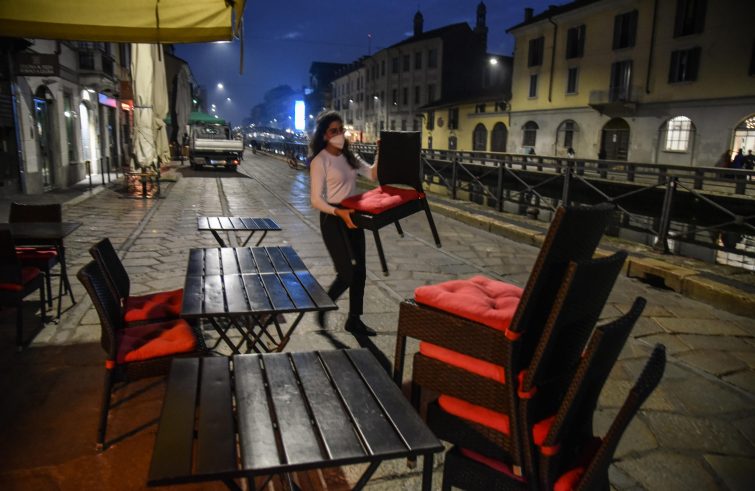
It’ s now or never. The measures laid down in the latest Prime Ministerial Decree regarding the health emergency are effective as of today. The Regions at higher risk will enter partial lockdown. “The purpose of these measures is to mitigate, not to curb the contagion, which is unfortunately very widespread”, said Dr. Michele Conversano, specialized in Hygiene and Preventive Medicine, chair of the Scientific Advisory Committee of HappyAgeing, Italian Alliance for Active Ageing, lecturer at various universities, including the Sapienza University of Rome and the University of Bari. “No one has a crystal ball that is going to reveal whether we will se a decrease of the curve in the coming weeks – he told SIR -. The virus is circulating rapidly today. It is necessary to limit the chances of contagion.”
For almost a week now all the students in the Apulia region switched back to remote learning by order of the region’s President Michele Emiliano. “I recommend that all Regions carefully evaluate this possibility”, said Conversano, who pointed out:
“Preventive measures must not only be based on the type of intervention but also on timing, so I fully agree to close schools as has been done in Apulia because, like all respiratory viruses, it circulates almost always without symptoms in the younger age groups.”
The slight decrease in the virus’ actual transmission rate – RT index- in Milan, brought some relief in the last few days. It sends a signal, “but be warned – he cautioned -, even the number of coronavirus testing swabs varies from day to day.”
The public health expert’s concern is the high rate of Covid-19 cases among people with symptoms such as cough, fever and cold.
“No specific respiratory pathogens are circulating in this period. That’s why – he said – isolating symptomatic patients and their family members at home, regardless of swab testing, is one of the main steps to be taken. Given a situation where Regions face difficulties in testing everyone, it may happen that the symptomatic person remains at home while his/her cohabitants, probably also infected, continue going out. Regions lacking the capacity to carry out timely coronavirus testing should isolate the whole family.”
Owing to Coronavirus test delays, those who have been in close contact with an infected person and are asymptomatic prefer to isolate themselves and go out after 14 days without taking the test, as provided for by current regulations. “However, in this way we risk underestimating the potential spread of the virus to cohabitants who continue to circulate. With these high numbers it becomes very difficult to ensure proper tracking. That’s why individual behaviours are decisive regardless of regulatory measures.
It’s sad to say, but should there be a lockdown we are the only ones to blame.”
What do you thing about the proposal made by immunologist Antonella Viola to impose a week of total lockdown every month? “It’s the stop-and-go approach – Conversano replied -: shutting everything down in the attempt of reducing the epidemic curve. Two weeks would be better, it could help reduce the contagion chain and relieve overcrowded intensive therapy wards.”
The expert commented on the notion of keeping at home only senior citizens, suggested in a study by the Institute for International Political Studies (ISPI): “The proposal has no scientific grounds. Moreover, it is unethical. It would be like saying that in order to avoid car accidents young and novice drivers should not be allowed to drive.
In addition to being a resource in support of families, the elderly already suffer from lack of care and assistance. Isolating them would worsen their condition.”
Past October HappyAgeing submitted a position paper on vaccinating the elderly in this very unusual season. “We have no interest in getting involved in the controversy of distribution but what’s certain – and we said this before the summer – is that timely actions had to be taken to ensure an adequate number of doses to meet the greater needs of the coming fall. Planning is key for a product that is made months in advance. For now the flu has not arrived, it will arrive in December so there is time to get vaccinated”. In December influenza will be circulating in addition to Covid-19: “If by then the contagion curve will not be reduced, we could be facing an extremely challenging scenario.”












